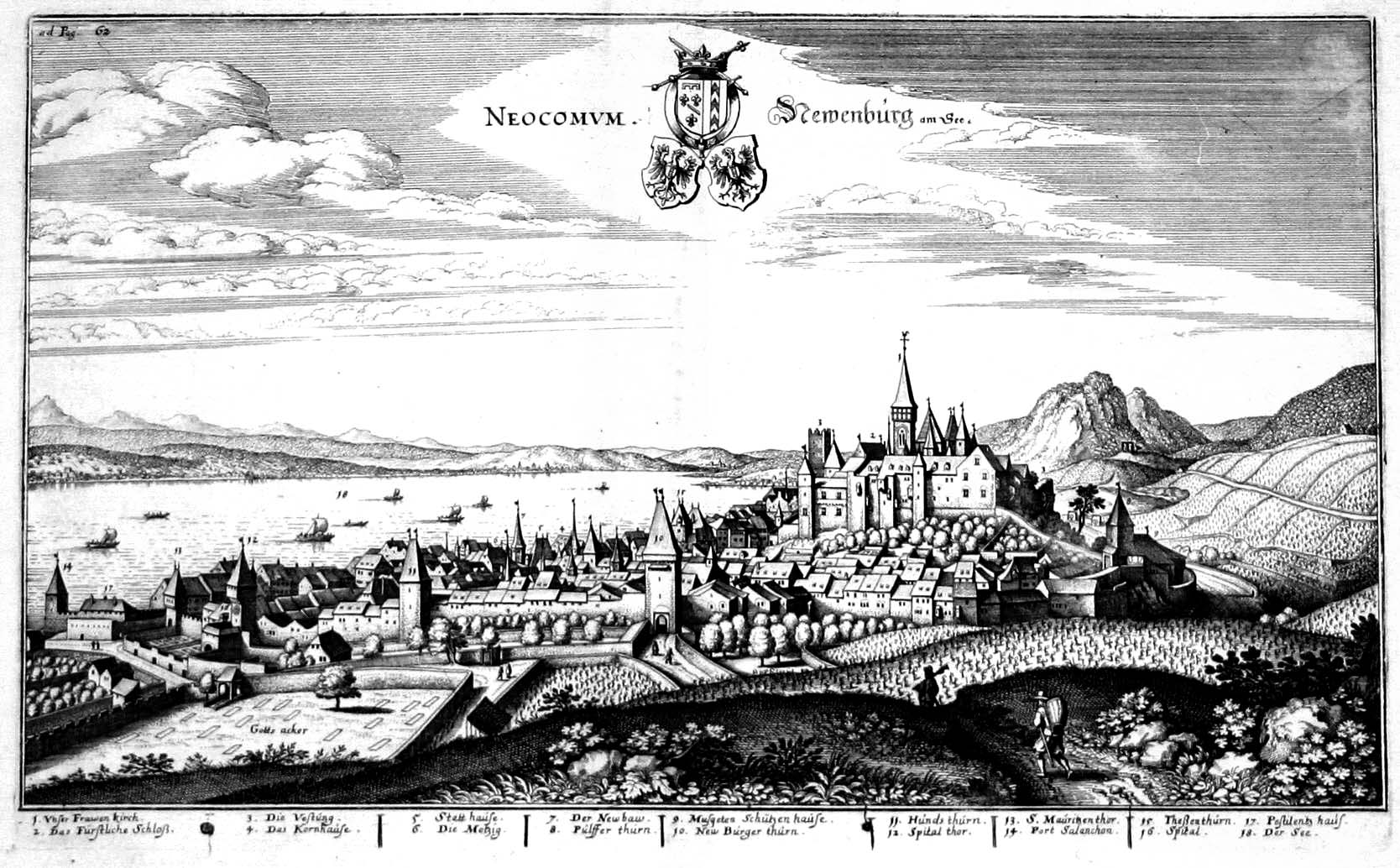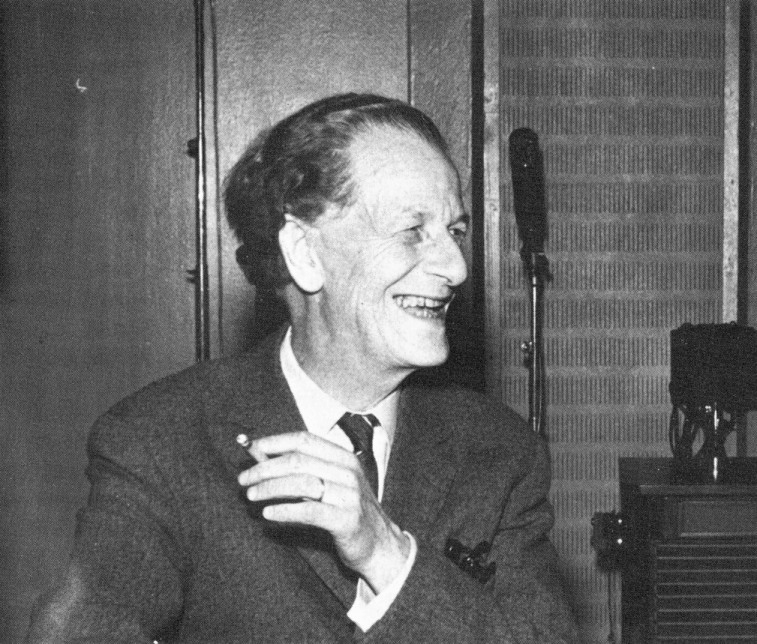|
Pierre Mollet
Pierre Mollet (23 March 1920, Neuchâtel - 27 October 2007) was a Canadian operatic baritone. He was born in Switzerland. He became a naturalized Canadian citizen in 1974 and in 1979, he married the Canadian pianist Suzanne Blondin. Mollet was trained at the Lausanne Conservatory where he was a pupil of Charles Panzéra. In 1946, he won second prize at the Geneva International Music Competition. The following year he began studies in music interpretation with Nadia Boulanger in Paris, France and became highly active performing as a concert soloist with orchestras in that city during the late 1940s and 1950s. From 1948 to 1962, he traveled throughout Northern Africa and France performing in concerts sponsored by the Jeunesses Musicales International. He also sang in concerts at a number of notable music festivals such as the Strasbourg Festival and the Aix-en-Provence Festival. Mollet made his professional opera debut in 1952 portraying Pelléas in Claude Debussy's '' Pelléa ... [...More Info...] [...Related Items...] OR: [Wikipedia] [Google] [Baidu] |
Neuchâtel
, neighboring_municipalities= Auvernier, Boudry, Chabrey (VD), Colombier, Cressier, Cudrefin (VD), Delley-Portalban (FR), Enges, Fenin-Vilars-Saules, Hauterive, Saint-Blaise, Savagnier , twintowns = Aarau (Switzerland), Besançon (France), Sansepolcro (Italy) Neuchâtel (, , ; german: Neuenburg) is the capital of the Swiss canton of Neuchâtel, situated on the shoreline of Lake Neuchâtel. Since the fusion in 2021 of the municipalities of Neuchâtel, Corcelles-Cormondrèche, Peseux, and Valangin, the city has approximately 45,000 inhabitants (80,000 in the metropolitan area). The city is sometimes referred to historically by the German name ; both the French and German names mean "New Castle". It was originally part of the Kingdom of Burgundy, then part of the Holy Roman Empire and later under Prussian control from 1707 until 1848, with an interruption during the Napoleonic Wars from 1802 to 1814. In 1848, Neuchâtel became a republic and a canton of Switzerland. Neuch� ... [...More Info...] [...Related Items...] OR: [Wikipedia] [Google] [Baidu] |
Claude Debussy
(Achille) Claude Debussy (; 22 August 1862 – 25 March 1918) was a French composer. He is sometimes seen as the first Impressionist composer, although he vigorously rejected the term. He was among the most influential composers of the late 19th and early 20th centuries. Born to a family of modest means and little cultural involvement, Debussy showed enough musical talent to be admitted at the age of ten to France's leading music college, the Conservatoire de Paris. He originally studied the piano, but found his vocation in innovative composition, despite the disapproval of the Conservatoire's conservative professors. He took many years to develop his mature style, and was nearly 40 when he achieved international fame in 1902 with the only opera he completed, '' Pelléas et Mélisande''. Debussy's orchestral works include ''Prélude à l'après-midi d'un faune'' (1894), ''Nocturnes'' (1897–1899) and ''Images'' (1905–1912). His music was to a considerable extent a r ... [...More Info...] [...Related Items...] OR: [Wikipedia] [Google] [Baidu] |
Canadian Operatic Baritones
Canadians (french: Canadiens) are people identified with the country of Canada. This connection may be residential, legal, historical or cultural. For most Canadians, many (or all) of these connections exist and are collectively the source of their being ''Canadian''. Canada is a multilingual and multicultural society home to people of groups of many different ethnic, religious, and national origins, with the majority of the population made up of Old World immigrants and their descendants. Following the initial period of French and then the much larger British colonization, different waves (or peaks) of immigration and settlement of non-indigenous peoples took place over the course of nearly two centuries and continue today. Elements of Indigenous, French, British, and more recent immigrant customs, languages, and religions have combined to form the culture of Canada, and thus a Canadian identity. Canada has also been strongly influenced by its linguistic, geographic, and e ... [...More Info...] [...Related Items...] OR: [Wikipedia] [Google] [Baidu] |
2007 Deaths
This is a list of deaths of notable people, organised by year. New deaths articles are added to their respective month (e.g., Deaths in ) and then linked here. 2022 2021 2020 2019 2018 2017 2016 2015 2014 2013 2012 2011 2010 2009 2008 2007 2006 2005 2004 2003 2002 2001 2000 1999 1998 1997 1996 1995 1994 1993 1992 1991 1990 1989 1988 1987 See also * Lists of deaths by day The following pages, corresponding to the Gregorian calendar, list the historical events, births, deaths, and holidays and observances of the specified day of the year: Footnotes See also * Leap year * List of calendars * List of non-standard ... * Deaths by year {{DEFAULTSORT:deaths by year ... [...More Info...] [...Related Items...] OR: [Wikipedia] [Google] [Baidu] |
1920 Births
Nineteen or 19 may refer to: * 19 (number), the natural number following 18 and preceding 20 * one of the years 19 BC, AD 19, 1919, 2019 Films * ''19'' (film), a 2001 Japanese film * ''Nineteen'' (film), a 1987 science fiction film Music * 19 (band), a Japanese pop music duo Albums * ''19'' (Adele album), 2008 * ''19'', a 2003 album by Alsou * ''19'', a 2006 album by Evan Yo * ''19'', a 2018 album by MHD * ''19'', one half of the double album ''63/19'' by Kool A.D. * ''Number Nineteen'', a 1971 album by American jazz pianist Mal Waldron * ''XIX'' (EP), a 2019 EP by 1the9 Songs * "19" (song), a 1985 song by British musician Paul Hardcastle. * "Nineteen", a song by Bad4Good from the 1992 album '' Refugee'' * "Nineteen", a song by Karma to Burn from the 2001 album ''Almost Heathen''. * "Nineteen" (song), a 2007 song by American singer Billy Ray Cyrus. * "Nineteen", a song by Tegan and Sara from the 2007 album '' The Con''. * "XIX" (song), a 2014 song by Slip ... [...More Info...] [...Related Items...] OR: [Wikipedia] [Google] [Baidu] |
Charles Gounod
Charles-François Gounod (; ; 17 June 181818 October 1893), usually known as Charles Gounod, was a French composer. He wrote twelve operas, of which the most popular has always been ''Faust (opera), Faust'' (1859); his ''Roméo et Juliette'' (1867) also remains in the international repertory. He composed a large amount of church music, many songs, and popular short pieces including his Ave Maria (Bach/Gounod), Ave Maria (an elaboration of a Johann Sebastian Bach, Bach piece), and ''Funeral March of a Marionette''. Born in Paris into an artistic and musical family Gounod was a student at the Conservatoire de Paris and won France's most prestigious musical prize, the Prix de Rome. His studies took him to Italy, Austria and then Prussia, where he met Felix Mendelssohn, whose advocacy of the music of Bach was an early influence on him. He was deeply religious, and after his return to Paris, he briefly considered becoming a priest. He composed prolifically, writing church music, songs ... [...More Info...] [...Related Items...] OR: [Wikipedia] [Google] [Baidu] |
Werther
''Werther'' is an opera (''drame lyrique'') in four acts by Jules Massenet to a French libretto by Édouard Blau, Paul Milliet and Georges Hartmann (who used the pseudonym Henri Grémont). It is loosely based on Goethe's epistolary novel ''The Sorrows of Young Werther'', which was based both on fact and on Goethe's own early life. Earlier examples of operas using the story were made by Kreutzer (1792) and Pucitta (1802). Milnes R. Werther. In: ''The New Grove Dictionary of Opera''. Macmillan, London and New York, 1997. Performance history Massenet started composing ''Werther'' in 1885, completing it in 1887. He submitted it to Léon Carvalho, the director of the Paris Opéra-Comique, that year, but Carvalho declined to accept it on the grounds that the scenario was too serious. With the disruption of the fire at the Opéra-Comique and Massenet's work on other operatic projects (especially ''Esclarmonde''), it was put to one side, until the Vienna Opera, pleased with the succes ... [...More Info...] [...Related Items...] OR: [Wikipedia] [Google] [Baidu] |
Jules Massenet
Jules Émile Frédéric Massenet (; 12 May 1842 – 13 August 1912) was a French composer of the Romantic era best known for his operas, of which he wrote more than thirty. The two most frequently staged are '' Manon'' (1884) and ''Werther'' (1892). He also composed oratorios, ballets, orchestral works, incidental music, piano pieces, songs and other music. While still a schoolboy, Massenet was admitted to France's principal music college, the Paris Conservatoire. There he studied under Ambroise Thomas, whom he greatly admired. After winning the country's top musical prize, the Prix de Rome, in 1863, he composed prolifically in many genres, but quickly became best known for his operas. Between 1867 and his death forty-five years later he wrote more than forty stage works in a wide variety of styles, from opéra-comique to grand-scale depictions of classical myths, romantic comedies, lyric dramas, as well as oratorios, cantatas and ballets. Massenet had a good sense of the ... [...More Info...] [...Related Items...] OR: [Wikipedia] [Google] [Baidu] |
Monsieur De Pourceaugnac (opera)
''Monsieur de Pourceaugnac'' is a three-act '' comédie-ballet''—a ballet interrupted by spoken dialogue—by Molière, first presented on 6 October 1669 before the court of Louis XIV at the Château of Chambord by Molière's troupe of actors. Subsequent public performances were given at the theatre of the Palais-Royal beginning on 18 November 1669. The music was composed by Jean-Baptiste Lully, the choreography was by Pierre Beauchamp, the sets were by Carlo Vigarani, and the costumes were created by the chevalier d’Arvieux. Lully notably took a role himself on stage in the work's première, portraying a physician in the dance of the enemas. (Molière regularly performed in his own stage works.) Overview This comedy-ballet was written in September 1669 by Molière at the Chateau de Chambord, a village located in the former province of Orleans (Kingdom of France) and the current French department of Loir-et-Cher. The piece was published in Paris by Jean Ribou in a book ... [...More Info...] [...Related Items...] OR: [Wikipedia] [Google] [Baidu] |
Frank Martin (composer)
Frank Martin (15 September 1890 – 21 November 1974) was a Swiss composer, who spent much of his life in the Netherlands. Childhood and youth Born into a Huguenot family in the Eaux-Vives quarter of Geneva, the youngest of the ten children of a Calvinist pastor named Charles Martin, Frank Martin started to improvise on the piano prior to his formal schooling. At the age of nine he had already written a few songs without external musical instruction. At 12, he attended a performance of Johann Sebastian Bach's '' St. Matthew Passion'' and was deeply affected by it. Respecting his parents' wishes, he studied mathematics and physics for two years at Geneva University, but at the same time was also studying piano, composition and harmony with his first music teacher Joseph Lauber (1864–1953), a Geneva composer and by that time a leading figure of the city's musical scene. In the 1920s, Martin worked closely with Émile Jaques-Dalcroze from whom he learned much about rhythm a ... [...More Info...] [...Related Items...] OR: [Wikipedia] [Google] [Baidu] |






